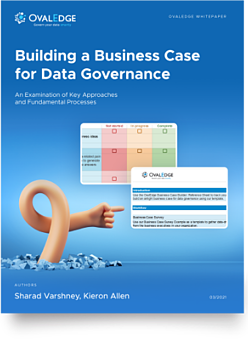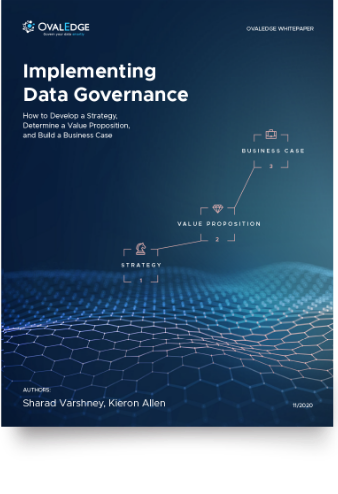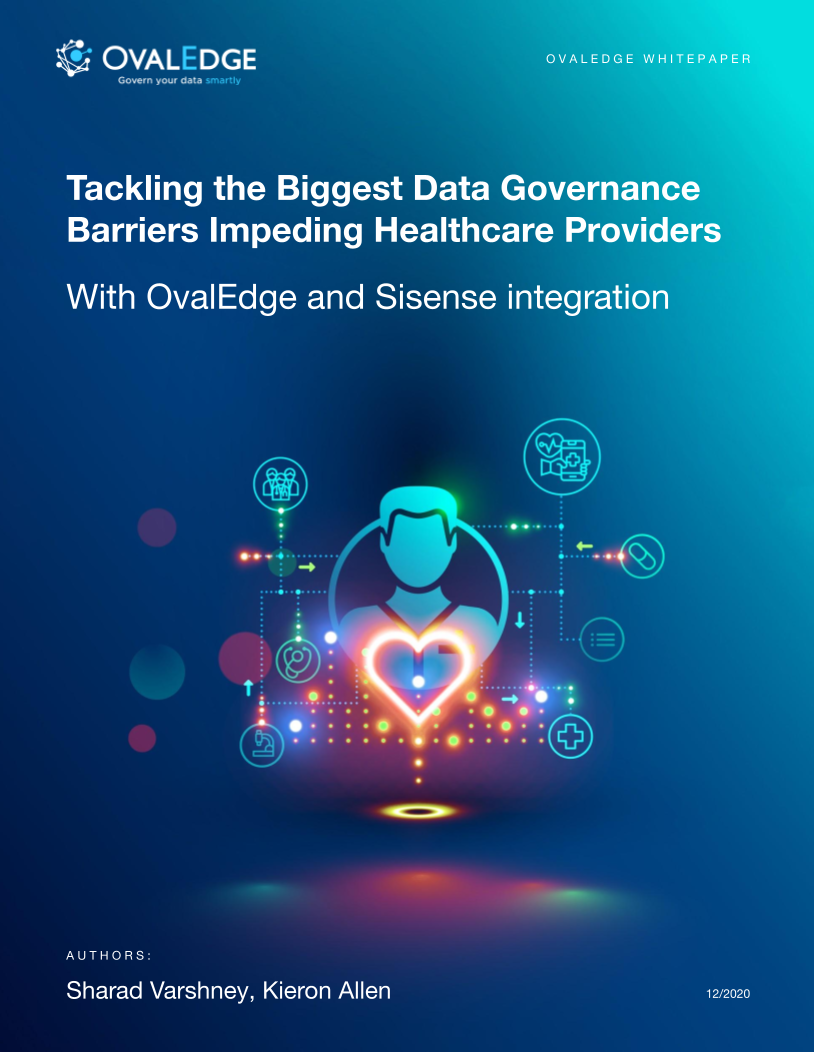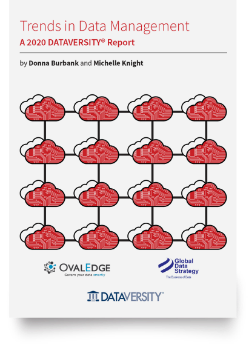Table of Contents

Data Governance in Technology Companies
In this digital wilderness, tech companies stand as pioneers and explorers in a vast sea of data. As they embark on their quest for technological marvels, they encounter the formidable challenges and untapped potential of their most precious resource – data.
As the sun rises on the Silicon horizon, the characters in this narrative find themselves at a crossroads. The promise of innovation beckons, but the path is fraught with the need for governance. Like a capricious deity, data demands order and structure to reveal its true potential. And so, the journey of data governance unfolds – a saga of challenges, triumphs, and the uncharted territories of tech's relentless pursuit of excellence. Join us as we delve into the epic tale of data governance in tech companies, where each line of code becomes a chapter in the ever-evolving story of technological prowess and responsible innovation.
Related Post: Top 5 Data Governance Use Cases
Why should Tech Companies do Data Governance?
AI readiness
In the rapidly evolving landscape of technology, artificial intelligence (AI) is not just a futuristic concept but a tangible reality. The very foundation of AI innovation rests on the quality and trustworthiness of data, making data governance a critical element in ensuring the success and functionality of AI systems.
Tech companies, being at the forefront of innovation, are increasingly recognizing the pivotal role of data governance in their operations. The mantra is clear: get data AI ready or risk constraining the potential of cutting-edge technological advancements. Without high-quality and trustworthy data, AI algorithms cannot unleash their full potential, hampering the transformative capabilities that these technologies bring to the table.
Compliance
In addition to fueling AI innovation, data governance plays a key role in aligning tech companies with the ever-evolving landscape of compliance. In an era where countries are enacting stringent data protection laws to safeguard against misuse, it is imperative for tech companies to proactively prepare their data for compliance. Each day brings new legislative measures aimed at preventing the nefarious use of data, and tech companies must stay ahead of the curve to ensure that their practices align with these regulations.
Related Post: 3 Data Privacy Compliance Challenges that can be solved with Data Governance
As AI laws become increasingly prevalent, tech companies find themselves navigating a complex web of legal requirements. To make data compliance-ready, it is crucial to establish common reusable capabilities that streamline adherence to diverse regulations across different jurisdictions. Tech companies should adopt a proactive approach, anticipating and integrating compliance measures into their data governance frameworks to avoid legal pitfalls and ensure ethical data practices.
Effective Decision Making
Tech companies are inherently data-savvy, relying on data-driven decision-making processes. The underlying data must be consistent and high-quality for these decisions to be reliable. This necessitates clear and standardized metadata definitions for Key Performance Indicators (KPIs) and metrics. With a well-defined metadata structure, businesses can ensure that the data they base their decisions on is accurate, consistent, and aligned with organizational goals.
Ensuring the quality of data goes beyond metadata definitions; it requires addressing operational issues that may compromise data integrity. Tech companies must implement measures to identify and rectify any operational anomalies in their data, guaranteeing a smooth and reliable flow of information for decision-making processes.
Moreover, data governance becomes a shield against unauthorized access, particularly in sensitive areas such as salary data. It is paramount that only authorized personnel have access to certain datasets to prevent the leakage of confidential information. Effective data governance frameworks enforce strict access controls, ensuring that sensitive data remains within the confines of authorized domains.
High Productivity
Tech companies, known for their high productivity, can further enhance efficiency by leveraging available tools. A Data Catalog, for instance, serves as a centralized repository where all data is cataloged and easily accessible. This streamlines data discovery and facilitates collaboration among teams, fostering a more efficient and cohesive work environment.
In conclusion, data governance is not merely a procedural requirement but a cornerstone for tech companies seeking to thrive in the age of AI and heightened data regulations. By making data ready for AI, ensuring compliance, and implementing robust governance frameworks, tech companies position themselves as responsible innovators capable of harnessing technology's true potential while safeguarding against potential risks. In a world where data is the new currency, investing in data governance is an investment in tech companies' future success and sustainability.
Related Post: The Top Three CDO Priorities for 2024
What is Data Governance?
Data governance is about establishing Policies, Controls, and Processes.
In today's rapidly evolving digital landscape, data governance emerges as a crucial framework, ensuring that an organization's data assets are managed efficiently, ethically, and legally. At its core, data governance is about instituting comprehensive policies, control mechanisms, and processes to achieve three fundamental objectives:
1. Clarity and Consistency in Metadata
Metadata, often described as "data about data," plays a pivotal role in how data is stored, retrieved, and understood. Effective data governance ensures that metadata is clear and consistent across the organization. This clarity is fundamental to achieving uniformity in data interpretation, which supports accurate decision-making, facilitates seamless integration of new data sources, and enhances overall data usability. By standardizing metadata definitions, formats, and structures, organizations can avoid the pitfalls of data silos and misinterpretation, leading to more coherent and effective data strategies.
2. Accuracy of Data
The value of data lies in its accuracy. Data governance frameworks emphasize the importance of maintaining the integrity and precision of data throughout its lifecycle. This involves implementing processes to continually monitor, cleanse, and validate data. Ensuring data accuracy is crucial for reliable analytics, forecasting, and strategic planning. Inaccurate data can lead to misguided business decisions, financial losses, and reputational damage. Data governance addresses this by establishing rigorous quality checks and balances, thereby assuring stakeholders of the reliability of their data assets.
3. Compliance and Controlled Data Access
In an era of rampant data breaches and privacy concerns, adhering to various privacy laws and regulations is non-negotiable. Data governance plays a vital role in ensuring that an organization's data usage complies with international, national, and industry-specific privacy standards like GDPR, CCPA, and HIPAA. It involves setting up policies defining who can access what data and for what purpose, safeguarding sensitive information and maintaining privacy. Controlled data access is not just about restricting access; it's about empowering the right people with the right data for the right purpose and ensuring ethical and legal use of data assets.
Related Post: Data Access Management Basics & Implementation Strategy
Conclusion
In conclusion, data governance is not merely a procedural requirement but a cornerstone for tech companies seeking to thrive in the age of AI and heightened data regulations. By making data ready for AI, ensuring compliance, and implementing robust governance frameworks, tech companies position themselves as responsible innovators capable of harnessing technology's true potential while safeguarding against potential risks. In a world where data is the new currency, investing in data governance is an investment in tech companies' future success and sustainability.
Book a call with us to find out:1. How OvalEdge can help fuel AI readiness with high-quality data while safeguarding against potential risks. 2. Why only a comprehensive, end-to-end data governance solution can ensure your data is consistent, accurate, and compliant. 3. How technology companies can benefit from a strong data governance framework for high productivity and effective decision-making. |





